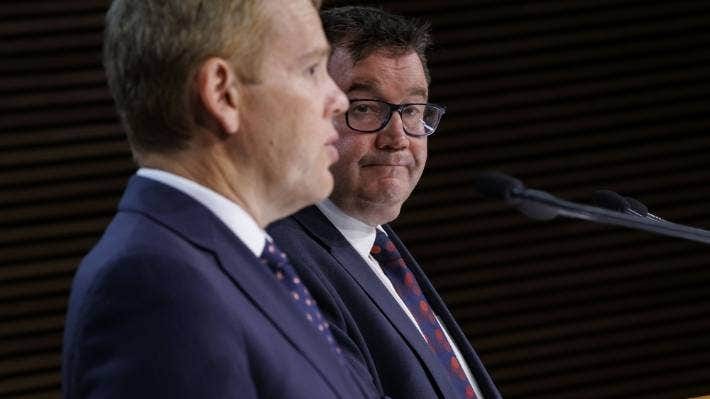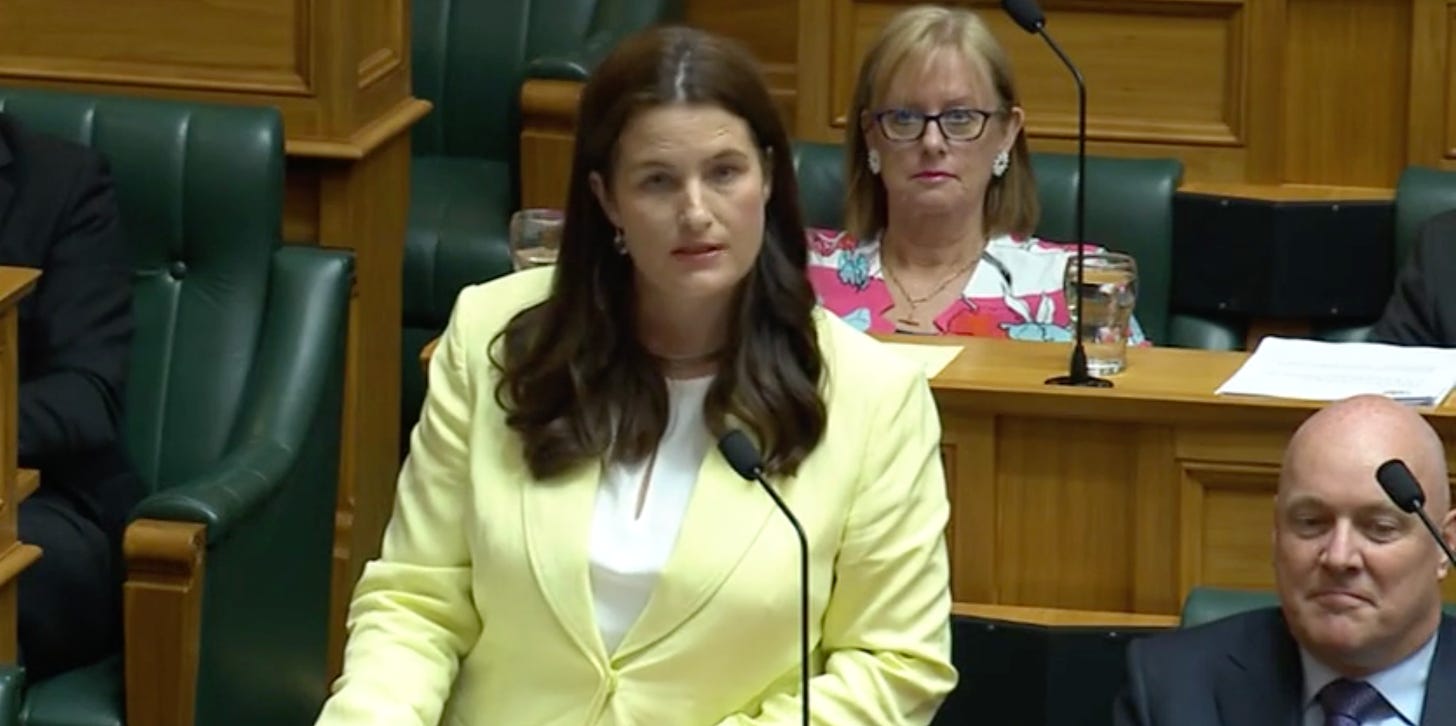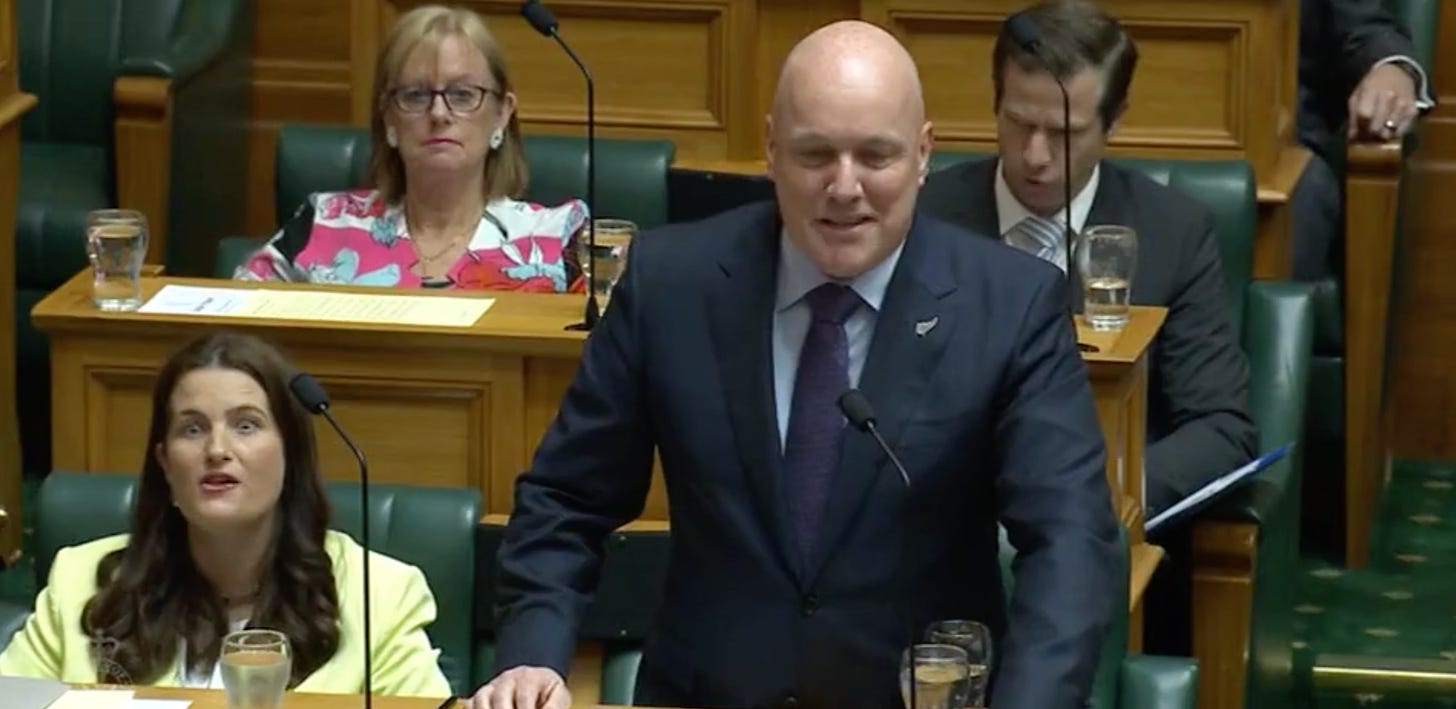“Tax, Borrow, or Cut.”
It sounds like something future bean counters were playing when the rest of us were playing “Dare, Promise, or Truth” as kids. Or for this generation I guess it would have been “Kiss, Marry, Kill” - or the ruder variants.
According to commentators these are the options available to Grant Robertson to pay for the recovery from Cyclone Gabrielle.
Tax - increase government income via a one-off “Flood Tax”
Borrow - the government can borrow cheaply, and this is undoubtedly a rainy day event.
Cut - reduce government expenditure from elsewhere to pay for the recovery.
Let’s look at these three options more closely.
Tax
Grant Robertson is currently taking flack from the National Party for not ruling out something he hasn’t even proposed - a “Flood Tax”. What he’s said is that the government needs more information before determining what will go into the budget.
That seems reasonable doesn’t it? Getting a good understanding of the scope of the problem before designing the solution? I would be a bit worried if they weren’t doing that. Not understanding the requirements of a project like building a house or developing a software application, before settling on a solution is a recipe for disaster. Much more so for a challenge on this scale.
But no, National want to constrain the solution options right off the bat before understanding the full problem. It’s like the captain on a flight saying “there is a bit of an issue, but we’re analysing what it is” and the National passengers jumping up and down demanding that he categorically rule out the use of parachutes, no matter what. I don’t think I want to fly with those guys.
Nicola Willis said the following in parliament yesterday: “Isn't it an indictment on the minister's economic management that, faced with the rebuild following a natural disaster, he won't rule out smashing Kiwis with a new tax…”
The implication from Mrs Willis appears to be that the government should have managed the economy in such a way that there was a large pot of money set aside to cover such an event.
Really Nicola? Because I think if Labour had a large pot of money waiting there just-in-case, I think you’d be screaming blue murder. You know, like your party did when some of the Covid budget was not fully allocated but held in reserve, just-in-case.
Nicola Willis also asked: “Why won't he rule out introducing a new tax to help pay for the Cyclone Gabrielle clean-up?"
It is a childish game cynically playing to people’s self interest. No one wants to be smashed by a new tax, as Mrs Willis puts it, but mature adults understand the recovery has to be paid for somehow, as do mature politicians.
National not content with playing off Māori vs non-Māori, townies vs farmers, the wealthy vs “bottom-feeders” are now seemingly ready to play off Cyclone victims vs those spared.
If National are so opposed to a “Flood Tax” then maybe the better option, although no politician will go there in election year, would be a tax increase. For example, move the highest bracket to 45 cents on the dollar on income over $180,000. We already have services in need of more investment, with this recovery on top an increase would seem logical. We’d still have tax rates lower than most comparable countries.
The Greens have proposed a one-off “Windfall Tax” to pay for the recovery.
"The Green Party has said a number of times that in this inflationary environment, there are a number of companies that are making massive, unearned windfall gains simply because of constrained supply.
They haven't done anything additional to earn those profits."
Seymour, Willis, and Luxon would lose their minds at the thought of excessive company profits being used to assist the community that has funded those profits. Which to me is another good reason for doing it.
Borrow
I’m not a fan of borrowing to live beyond our means and certainly not, as the previous government did, to pay for tax cuts. But it seems to me that an event like this could be an appropriate time to slap it on the credit card. As was done with the Canterbury and Kaikoura earthquakes.
But earthquakes are one-off situations, not things that are going to occur more and more frequently like the flooding from Gabrielle. Or the storm that hit a couple of weeks earlier battering the upper half of the North Island. We have to make major investments. Not just to recover, but to build back better with the expectation of similar events happening again - sadly, sooner rather than later.
Christopher Luxon said "I do think it's appropriate that New Zealand borrows for it but it [must be] well defined and we make sure that it's not loose like it was with Covid."
Again I would ask why? Or more to the point how could you expect to fully define the work required when you don’t understand the problem, and things may change. That illusion of control is something that appeals of course, we’d all love to know exactly what solutions are required and how much they will cost. But it is just an illusion. Retaining a contingency, or at least being able to change priorities as new things emerge, is only sensible.
Cuts
National and ACT were already clamouring for tax cuts, which would have to be paid for by government spending cuts - health, education, etc, before this disaster. Christopher Luxon has said post Gabrielle he still wants tax cuts. So presumably either the government would have to make even larger cuts to existing services, or not pay for the recovery.
Is that the sort of society we want? Where if a disaster occurs it is paid for out of the pockets of nurses and teachers? Not from excessive company profits, or by taxing the wealthy, or even an across the board “Flood Tax” to be paid for by all?
Aren’t we a community, not just a bunch of individuals out for ourselves? Don’t we help each other at a time of need? Some people don’t think so. Survival of the fittest for them:
I found it sad that before this event there was a market for the idea of cutting public services to pay for tax cuts, which would predominantly go to the wealthy. David Seymour was already proposing a massive $7 billion a year reduction in funding. Our public services, particularly healthcare, are really struggling and need increased funding, not a reduction.
In my opinion continuing to press for cuts at a time of national emergency is grotesque. But what about you? How do you think we should fund the recovery?








We can do several of the above in a coordinated, equitable manner. For one I'd like to see massive corporate profits being syphoned off for the communities who subsidised them 😊
Windfall and top rate. Financial services tax and CGT for dessert please sir.